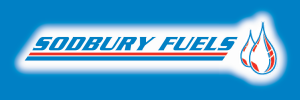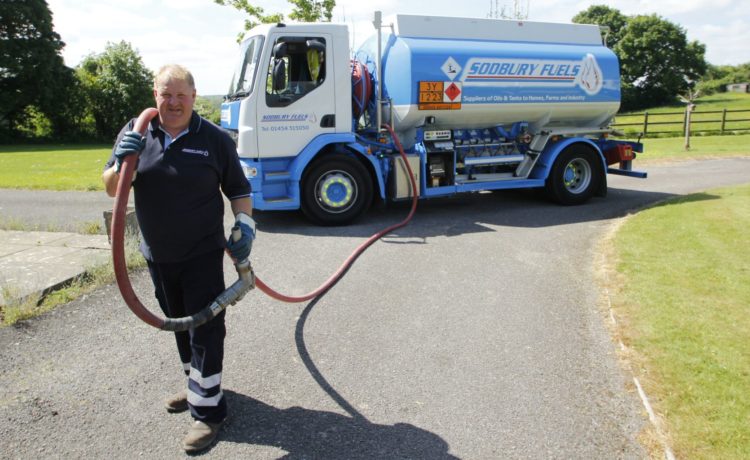The Safe Handling & Storage Of Oil Fuels
CUSTOMER INFORMATION
This page provides basic information about the following petroleum products that are supplied in bulk and intended solely for the use(s) described.
| PRODUCT | ALTERNATIVE NAMES | INTENDED USE |
| Kerosene C1 | Premium Grade Burning Oil (PGBO) Diesel | In Diesel heaters, lamps & other similar appliances. |
| Kerosene C2 | Regular Burning Oil (RBO) 28 sec Burning Oil | As domestic heating oil for oil-fired heating systems. |
| Gas Oil D | Diesel 35 sec Gas oil Marine Diesel Red Diesel | In some heating systems and in diesel engines, but not as road fuel except in prescribed diesel-engined vehicles. |
| Diesel | Automotive Diesel DERV ULSD (Ultra Low Sulphur Diesel) | In any diesel-engined road vehicle. |
HEALTH & SAFETY INFORMATION
These products are flammable but evaporate only slowly at ambient temperature and, in normal use, they do not constitute a significant fire or health hazard.
Never heat a container that has stored oil without first ensuring that it is free of residual oil and oil vapour.
In the unlikely event of a fire involving oil products, call the emergency Services immediately. To extinguish a small fire, a foam, dry powder or CO2 extinguisher or earth/sand can be used.
DO NOT USE WATER ON AN OIL FIRE AS IT WILL CAUSE THE FIRE TO SPREAD
Avoid prolonged or repeated exposure of skin to contact with oil and avoid splashing it into the eyes, swallowing it, or inhaling the vapour in a confined space.
In the event of contact with skin, wash with large volumes of water; for contact with the eyes, bathe them with clean water for ten minutes and seek medical attention if irritation persists.
Materials contaminated with oil should not be carried, or left in pockets, and any clothing that is heavily contaminated should be changed as soon as practicable.
Do not deliberately drink or inhale petroleum products but if this should happen accidentally, seek urgent medical attention.
The removal and disposal of an oil tank that is no longer required is a specialist operation and must not be undertaken without the use of safe and environmentally friendly procedures; advice on tank removal and disposal will be available from your oil supplier.
OIL STORAGE
Oil products should be stored in a soundly constructed tank, designed specifically for the purpose, and should be sited away from any source of heat or potential ignition. A means, such as a drip-tray or bund, should ideally be provided, capable of containing any oil that may leak or spill from the tank.
NB This is a legal requirement if the installation falls within the Oil Storage Regulations – your oil supplier can advise where these apply.
There should be suitable and unobstructed access at ground level to the tank and/or its fill point.
NB Health & Safety legislation discourages delivery drivers from climbing to gain access to a customer’s tank.
The tank should be clearly marked with the grade of oil required and the tank’s total capacity. An accurate gauge or dipstick should be fitted to the tank to avoid overfilling (a principal cause of spillages). Water from rain or condensation should be removed from the tank regularly.
The tank and its associated equipment should be examined carefully before and after a delivery and if there is a problem, such as a spillage or leakage, this must be notified to the oil supplier as soon as possible.
In the event of a spillage or leakage, do not smoke in the vicinity and do not try to disperse the oil with water; under no circumstances should a petroleum product be allowed to enter a drain or watercourse.
NB In the case of a serious spillage, the Environment Agency must be informed, using their emergency hotline telephone number: 800 80 70 60.
ENVIRONMENT STATEMENT
Businesses and individuals are responsible for complying with environmental regulations for preventing incidents of pollution.
Periodic servicing by a competent person, at least annually, of the complete oil-fired heating installation, from the condition of the tank and filters through to that of the burners is strongly recommended to minimise the risk of failure and resulting pollution. Boiler failure can occur when heat demand increases and oil starvation occurs, for example due to blocked filters, and incorrect burner settings could lead to the development of conditions producing a hazardous mixture of oil vapour and air.
Consult your oil supplier for the names of suitable servicing companies in the area.
LIABILITY STATEMENT
The supplier shall not be liable for death, personal injury or damage to property caused as a result of a failure by any third party to exercise a reasonable standard of care or to observe instructions and warnings contained in this information document.
The Company issuing this information is a member of the FPS.
© The Federation of Petroleum Suppliers 2002

